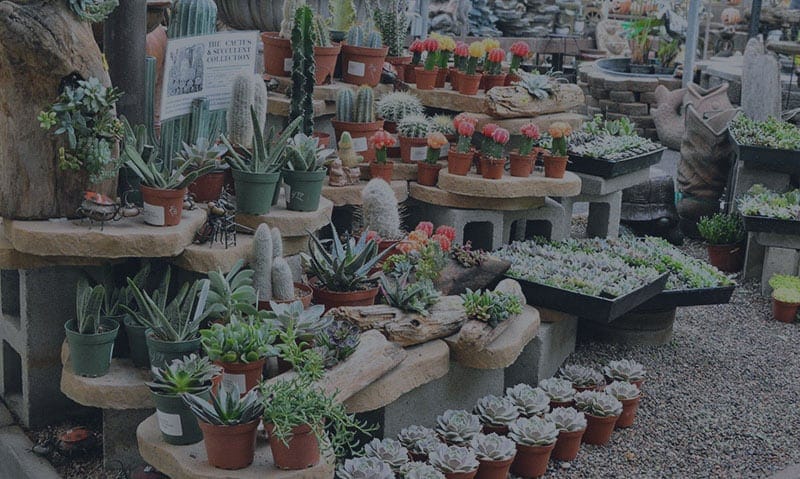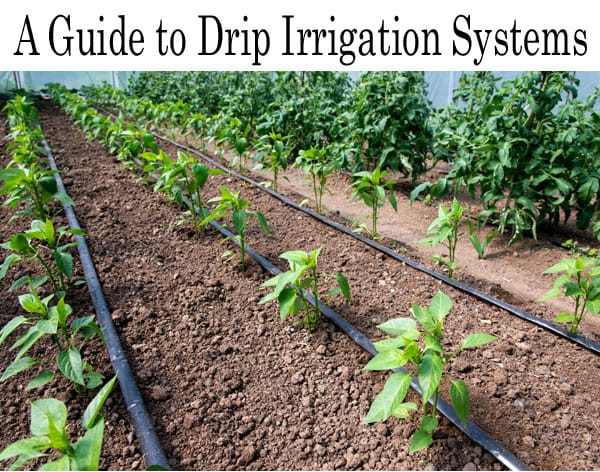Newsletter Articles
A Guide to Drip Irrigation Systems
Written by Susan B.
We devoted a recent post to talking about watering efficiently – without wasting water. We mentioned soaker hoses in that blog, but we didn’t discuss irrigation systems. And that’s what we plan to do now. Irrigation systems make it possible to spread hoses over designated areas of your garden, so the holes at strategic intervals of the hoses can direct water to the roots of your plants. It makes it possible to trickle water into the ground over an extended time.
Overhead sprinklers spray water over a large area, but because the water travels through the air, much of it evaporates before it ever touches the ground. In addition to that, the water that soaks the surface soil also evaporates – especially if the hot California sun beats down on it throughout the day. If you’ve been using a sprinkler system, your water bill is probably significantly higher because of it.
Drip irrigation systems are different. Because the water goes directly into the ground, you don’t lose any of it to evaporation in the air. And the fact that you can control the amount of water that goes into the ground to feed your plants, and because your plant leaves and stems aren’t getting wet, you are eliminating the environmental conditions that promote insect infestations or disease spread.
What is Drip Irrigation?
Drip irrigation is a type of micro-irrigation that is designed to conserve soil nutrients and to minimize or prevent waste. Most drip irrigation systems use a design that directs water directly to the plant roots.
The Benefits of Drip Irrigation Systems
Saving Water
The design of drip irrigation systems is such that they minimize water waste, and they prevent evaporation. Drip irrigation systems can potentially use 30-to-50% less water than conventional watering systems.
Extends Time that Plants Get Water
Drip irrigation systems are better at getting water into the depths of the ground – and directly to plant roots. Because the water goes into the ground so slowly, there is no runoff. And that slows the process of soil erosion – which we all know is a severe problem in Southern California.
Prevents Weeds from Taking Water and Soil Nutrients From Plants
Since drip irrigation systems direct water to plant roots, weeds will have a hard time depriving the plants of soil nutrients and water. That means you’ll have fewer weeds.
Proper Way to Prevent Plant Diseases
Excess moisture encourages the development of fungal diseases, other diseases, and insect and pest problems. Drip irrigation systems leave plant leaves dry, so it’s harder for these diseases to develop and spread.
Easily Adaptable
Most drip irrigation systems are designed for easy adjustments or modifications to fit the needs of your plants and where they are in your yard.
Types of Drip Irrigation Systems
Porous Soaker Hose
This is one of the best drip irrigation methods to use to get water to rows of shrubs or plant beds. It produces the least among of evaporation because it allows the soil to absorb all of the water it releases. It directs the water to plant roots. People like this system because it uses water efficiently, and because it is eco-friendly.
Porous soaker hose drip irrigation systems use recycled car tires. The car tires are recycled and then made into soaker hoses. The system is designed to drip water slowly to plant roots through the holes that cover the hose. Hoses will last for 5-to-10 years, if not longer.
There is only one disadvantage of this system; that is, that it isn’t useful for watering lawns.
This drip irrigation is typically problem-free; however, water can get stuck in the hose. If that happens, your hose will become a breeding ground for mosquitoes because they lay their eggs in water. Then, you’ll have a severe mosquito problem on your property.
Raindrip Drip System
The beauty of the Raindrip Drip System is that you just have to set it up and forget it. You simply attach the timer to the faucet, connect the supply line, lay it around your garden, and let the automated system do the rest. It distributes water more efficiently than traditional watering and saves water, time, and money. It is a great method to use to water your plants during a drought, and when there are watering restrictions. The Raindrip Drip System is available at Green Thumb Nursery, so you can make the switch today.
The Emitter Drip System
The Emitter Drip System is ideal if you have landscaped areas or shrubs throughout your property. This is the system you want, and you can set it up on your own. You can install it above or below the ground. It requires a long hose pipe that you can dedicate for use with this system.
Drill tiny holes (large enough that water can drip through and into the soil. The holes should be 12-and 15-inches apart. Put the hose 2-3-inches below the ground. If you prefer to have it above ground, create a path along which you can lay the hose. And when you go to buy your tubing, purchase the most durable one you can find.
MicroMist Sprinklers
MicroMist Sprinklers are like the traditional sprinklers you see that come out of the ground. That is the extent of their similarities because MicroMist sprinklers use a lot less water. MicroMist Sprinklers may be familiar to you because they are the systems that vineyards and fruit orchards use to water their trees.
MicroMist Sprinklers deliver a constant water mist to a large area. Because of the continuous moisture, the ground will feel like it’s covered with dew 24/7. It is only suited to large areas that need constant moisture.
We’ve now covered all of the possible watering technologies you can use in your garden or on your property. Drip irrigation methods are designed to get the highest amount of water to your plants, with minimal waste or evaporation. If you still have questions about drip irrigation, call or come into one of our stores. Our garden experts are always available to help you.
Sources:
https://learn.eartheasy.com/
https://gardening.yardener.
https://www.edoplant.com/
https://www.irrigationglobal.
https://www.irrigationrepair.
Do you like what you see? Sign up for our weekly newsletter to get content like this every week!


